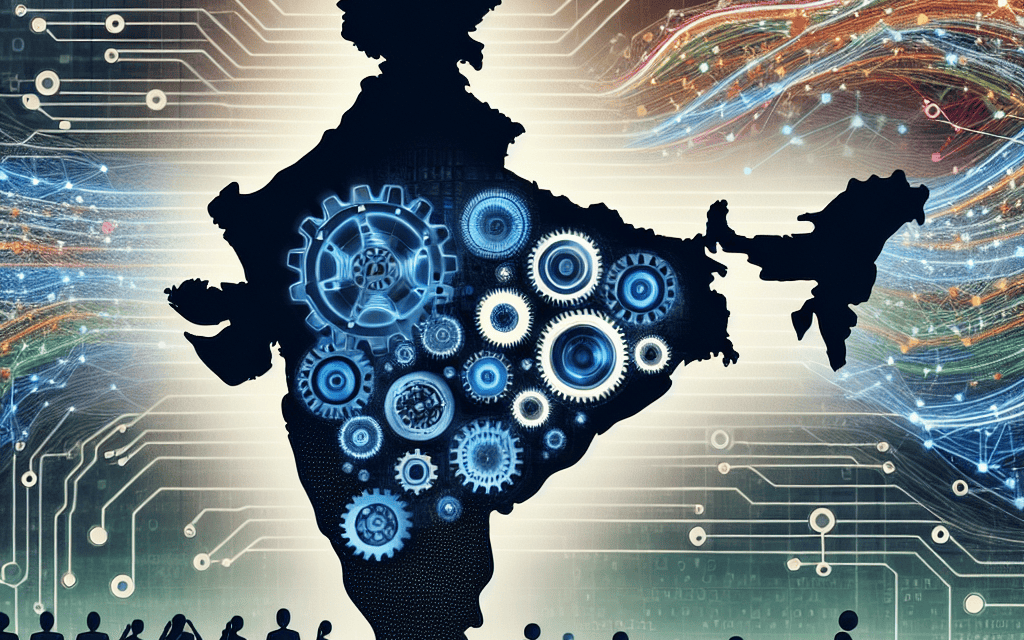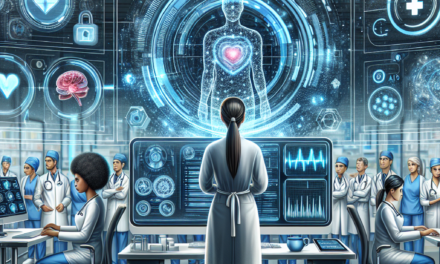India Leverages ABDM Data for Public AI Development

In recent years, India has emerged as a global leader in technology and innovation, with a particular focus on leveraging data for public good. One of the most significant initiatives in this regard is the Ayushman Bharat Digital Mission (ABDM), which aims to create a comprehensive digital health ecosystem in the country. By harnessing the vast amounts of data generated through ABDM, India is poised to make significant strides in the development of artificial intelligence (AI) for public benefit. This article explores how India is leveraging ABDM data for public AI development, examining the potential benefits, challenges, and future prospects of this ambitious endeavor.
The Ayushman Bharat Digital Mission: An Overview
The Ayushman Bharat Digital Mission (ABDM) is a flagship initiative of the Government of India, launched with the aim of transforming the country’s healthcare system through digital innovation. The mission seeks to create a seamless online platform that enables the integration of various digital health services, thereby improving access to healthcare for millions of Indians.
At the core of ABDM is the creation of a unique health ID for every citizen, which serves as a digital repository of their health records. This health ID is linked to a comprehensive health information system that includes data from hospitals, clinics, laboratories, and other healthcare providers. By digitizing health records and making them easily accessible, ABDM aims to improve the efficiency and effectiveness of healthcare delivery in India.
In addition to improving healthcare access, ABDM also aims to facilitate the development of AI-driven solutions for public health challenges. By leveraging the vast amounts of data generated through the mission, India can develop AI models that can predict disease outbreaks, optimize resource allocation, and improve patient outcomes.
- Creation of a unique health ID for every citizen
- Integration of digital health services
- Improvement of healthcare access and delivery
- Facilitation of AI-driven solutions for public health
Harnessing ABDM Data for AI Development
The vast amounts of data generated through ABDM present a unique opportunity for AI development in India. By analyzing this data, researchers and developers can gain valuable insights into various aspects of public health, enabling the creation of AI models that can address specific challenges.
One of the key areas where ABDM data can be leveraged for AI development is in disease prediction and prevention. By analyzing patterns in health data, AI models can identify potential outbreaks of infectious diseases and predict their spread. This information can be used to implement targeted interventions and prevent the spread of diseases, ultimately saving lives and reducing healthcare costs.
Another area where ABDM data can be utilized is in optimizing resource allocation. By analyzing data on healthcare utilization and patient outcomes, AI models can identify areas where resources are being underutilized or overutilized. This information can be used to allocate resources more efficiently, ensuring that healthcare services are delivered where they are needed most.
Furthermore, ABDM data can be used to develop AI models that improve patient outcomes. By analyzing data on treatment effectiveness and patient responses, AI models can identify the most effective treatment options for specific conditions. This information can be used to personalize treatment plans and improve patient outcomes.
- Disease prediction and prevention
- Optimizing resource allocation
- Improving patient outcomes
Challenges in Leveraging ABDM Data for AI Development
While the potential benefits of leveraging ABDM data for AI development are significant, there are also several challenges that need to be addressed. One of the primary challenges is ensuring the privacy and security of health data. Given the sensitive nature of health information, it is crucial to implement robust data protection measures to prevent unauthorized access and misuse.
Another challenge is ensuring the quality and accuracy of the data. Inaccurate or incomplete data can lead to erroneous conclusions and ineffective AI models. Therefore, it is essential to implement rigorous data validation and quality control measures to ensure the reliability of the data used for AI development.
Additionally, there is a need for skilled professionals who can analyze and interpret the data effectively. The development of AI models requires expertise in data science, machine learning, and healthcare, and there is currently a shortage of professionals with these skills in India. To address this challenge, it is important to invest in education and training programs that equip individuals with the necessary skills for AI development.
- Ensuring privacy and security of health data
- Ensuring quality and accuracy of data
- Need for skilled professionals in data science and healthcare
Case Studies: Successful AI Applications Using ABDM Data
Several successful case studies demonstrate the potential of leveraging ABDM data for AI development. One notable example is the use of AI models to predict the spread of COVID-19 in India. By analyzing data on infection rates, mobility patterns, and healthcare utilization, researchers were able to develop models that accurately predicted the spread of the virus and informed public health interventions.
Another successful application of AI using ABDM data is in the field of telemedicine. By analyzing data on patient consultations and treatment outcomes, AI models have been developed to provide personalized treatment recommendations and improve the quality of care delivered through telemedicine platforms.
Furthermore, AI models have been used to optimize the allocation of healthcare resources in rural areas. By analyzing data on healthcare utilization and patient outcomes, AI models have identified areas where resources are needed most, enabling targeted interventions and improving access to healthcare in underserved regions.
- Predicting the spread of COVID-19
- Improving telemedicine services
- Optimizing resource allocation in rural areas
Future Prospects and Conclusion
The future prospects of leveraging ABDM data for AI development in India are promising. As the digital health ecosystem continues to evolve, there will be increasing opportunities to harness data for AI-driven solutions that address public health challenges. By investing in data infrastructure, education, and research, India can position itself as a global leader in AI development for public good.
In conclusion, the Ayushman Bharat Digital Mission presents a unique opportunity for India to leverage data for AI development and improve public health outcomes. By addressing the challenges and building on successful case studies, India can harness the power of AI to transform its healthcare system and improve the lives of millions of citizens. The journey is complex, but with strategic planning and collaboration, the potential benefits are immense.





